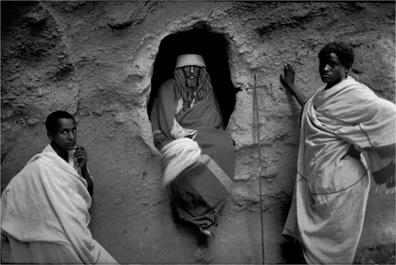Asceticism
M. C. STEENBERG
Asceticism is understood in Orthodoxy as that way of life which prepares one for the Kingdom of God through the training and conditioning of the whole human person – body and soul – towards a Godly life, and its exercise in virtue. The Greek word askesis from which it derives means “exercise” or “training” and comes from an ancient sporting vocabulary used to indicate the various labors in which an athlete would engage in order to prepare himself for effective competition. In the spiritual life, it retains the notions of preparation that the term’s sporting heritage provides, as well as the associated concepts of self-sacrifice, struggle, and battle against the will, habits, and passions that such exercise and training require.
The injunction towards asceticism comes from the gospel, with Christ’s statement that “the Kingdom of Heaven suffers violence, and the violent take it by force’ (Mt. 11.12) chief among its scriptural imperatives. The “violence” mentioned is of course not that of aggressive relationships (passionate violence), but the intentional and unrelenting work of the person against the impulses and desires of the fallen will, together with the corrupt body.

Plate 7 An Ethiopian hermit cave-dweller and his two deacon assistants. Photo Sulaiman Ellison.
Asceticism is this working against what is fallen in the human person, towards its correction, reformation, and purification, disavowing oneself of no means – however intense a struggle they may pose – by which this aim maybe accomplished. It is, then, an approach to the advance in Christian virtue that follows the Lord’s command: “Whosoever wishes to become my disciple, let him deny himself, take up his cross, and follow me” (Mt. 16.24; Lk. 9.23).
Orthodox Christian asceticism manifests itself in many ways, the common bond between all being their value as tools by which the conditioning and training of the heart and body may take place. The most familiar ascetical struggles are fasting, which may tame the impulses of the body and the gluttony of will; the keeping of vigils, which may bridle the impulse toward indulgent rest and focus the mind and heart on God; and the attention to physical labors, which may orient the work of body and mind toward the remembrance of God. Other common ascetical practices include the lengthening of prayer rules; permanent abstention from certain foods (as with monastics, who refrain altogether from eating meat); increased participation in divine services; prostrations; increased use of the prayer rope (Jesus Prayer), and so on. In all cases, the acts in and of themselves are not considered the end products or indications of spiritual attainment; rather, they are the means by which such attainment becomes accessible to Christian struggle.
Asceticism goes beyond specific acts, however, in the Orthodox injunction to live an ascetical life – that is, a whole life oriented around self-sacrifice, willing labors toward the kingdom, and the bearing of one’s cross in order to draw nearer to the Lord.
SEE ALSO: Confession; Fasting: Monasti- cism; Repentance; Sexual Ethics
REFERENCES AND SUGGESTED READINGS
Colliander, T. (1985) Way of the Ascetics.
Crestwood, NY: St. Vladimir’s Seminary Press. Spidlik, T. (1986) The Spirituality of the Christian East. Kalamazoo: Cistercian Publications.
